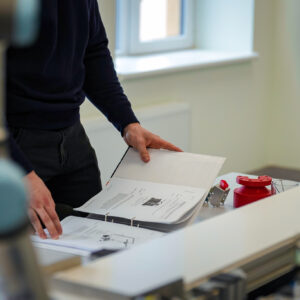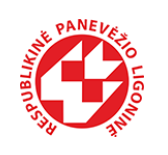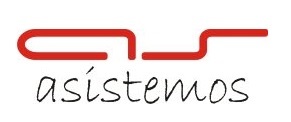Electric and Automatic Equipment
 Study mode and duration time: full-time (3 years), past-time (4 years)
Study mode and duration time: full-time (3 years), past-time (4 years)
Study programme is carried out: Panevėžio kolegija/State Higher Education Institution, Faculty of Technology Sciences
Degree and professional qualification: Professional Bachelor of Engineering Sciences
Volume of the study programme in credits: 180 ECTS credit
Objective(s) of the study programme:
The Electric and Automatic Equipment Study Programme aim is to train electrical engineering professionals who are able to creatively design, install, operate and modernize electric and automatic equipment, automatic systems, and organise professional activities in the global market.
 Program has been awarded the “Investor’s Spotlight” quality mark!
Program has been awarded the “Investor’s Spotlight” quality mark!
Please check Rules for Admission for foreigners
| General Subjects |
|---|
| Pofessional Foreign Language |
| Entrepreneurship Basics |
| Study Fields Subjects |
| Applied Mathematics |
| Practical Informatics and Introduction to Programming Module |
| Physics |
| Electrical Engineering and Electrotechnical Materials Module |
| Applied Research |
| Industrial Electronics |
| Engineering and Computer Aided Design |
| Electric Machinery |
| Automation and Measurement Technique Module |
| Practices |
| Electrical Installation practice |
| General Subjects |
|---|
| Professional Language Culture |
| Ergonomics and Professional Ethics |
| Study Fields Subjects |
| Engineering Drawing and Computer Aided Design |
| Electric Machines |
| Networks of Control Systems |
| Elecrical Drives |
| Automatic Control |
| Environmental and Human Saf |
| Electrical Equipment, Installation and Operation |
| Practices |
| Professional practice |
| Technological 1 |
| Study Fields Subjects |
|---|
| Control Mechatronic of System |
| Economics |
| Renewable Energy Sources |
| Energy Economy |
| Internet of the Things A1 |
| Smart Things Technologies A2 |
| Management Basics A1 |
| Law Basics A2 |
| Design and Manufacture of Electronic Devices |
| Quality Management A1 |
| Project Management A2 |
| Automation of Technological Processes |
| Practices |
| Mechatronics practice |
| Technological 2 practice |
| Final practice |
| Final Project |
At PANKO, studies are built around practice, innovation, and real career opportunities.
- Practice-oriented studies – close cooperation with employers and the use of modern technologies prepare you for today’s job market.
- Small study groups – personal attention and individual support for every student.
- Hands-on learning – modern laboratories, advanced equipment, and real business projects.
- Lecturers with real-world experience – industry professionals from different cities who share up-to-date, practical knowledge.
- Extensive network of business partners – nearly 300 cooperation agreements ensure high-quality internships and open doors to future employment.
- International opportunities – study or complete internships abroad with the Erasmus+ programme for up to 12 months during your studies.
- Comfortable student life – a college dormitory located just a 10-minute walk from the city center.
- A strong and supportive community – lecturers, students, and partners working together to create success.
At PANKO, you don’t just gain knowledge – you turn it into real experience, international exposure, and strong career prospects.
Join the PANKO community — because HERE is the start of YOUR career!
Access to Professional activity:
Graduates of the Electrical and Automation Equipment study programme will be able to work in various power plants, substations or electricity grid enterprises, industrial plants, public and private limited companies of Lithuania and other European countries. They can arrange installation and repair work of electrical and automation equipment, select the appropriate methods of execution of work, calculate and evaluate material and technical resources, moreover, identify the causes of failures and eliminate them, check the quality of the work performed, use the design and estimate documentation, technical standards and drawings, will be able to collect and interpret data which are necessary for making decisions, forward information, ideas, problems and solutions in communication, therefore, this profession is demanded and promising in the modern market.
Objective(s) of the study programme:
The Electric and Automatic Equipment Study Programme aim is to train electrical engineering professionals who are able to creatively design, install, operate and modernize electric and automatic equipment, automatic systems, and organise professional activities in the global market.
Learning outcomes:
- Ability to understand the general concepts of natural and social sciences, mathematics, laws and regularities, necessary to understand the relevant fundamentals of the study programme in the field of electrical engineering.
- Ability to attain fundamental knowledge of electrical engineering that is relevant in practice and ap-ply the abilities in identifying and solving complex specific or abstract problems in the field of activities.
- Ability to apply the knowledge and understanding in engineering analysis, selecting appropriate methods, experimental and production equipment, and estimating the norms and standards for safe industrial work.
- Ability to attain the knowledge and skills necessary for the fulfilment of design work in accordance with the principles of electrical engineering, structure, functioning and parameters of electrical systems.
- Ability to independent search for professional information, analyse sources of information, conducting applied research in the field of electrical engineering.
- Ability to conduct electrical engineering experiments and process the outcomes applying mathematical methods and computer equipment. Ability to provide practical conclusions for the outcomes.
- Ability to understand the basic requirements for electrical engineering activities, the principles of organization, ethical, environmental and commercial considerations.
- Ability to organize the operation of the electricity economy, plan the activities of the unit and manage employees, selecting and applying advanced technological and organizational tools and production equipment.
- Ability to install, operate and modernize electric and automatic equipment, detecting and eliminating faults.
- Ability to deal with engineering challenges independently or in the team, cooperate with the engineering community and general public.
- Ability to understand the impact of decisions on the society and environment, comply with the rules of professional ethics and engineering activities, and be aware of the responsibility for the outcomes of the performance of electrical engineering.
- Ability to understand the basic aspects of project management and business at engineering level and be aware of the importance of individualized lifelong learning.





























